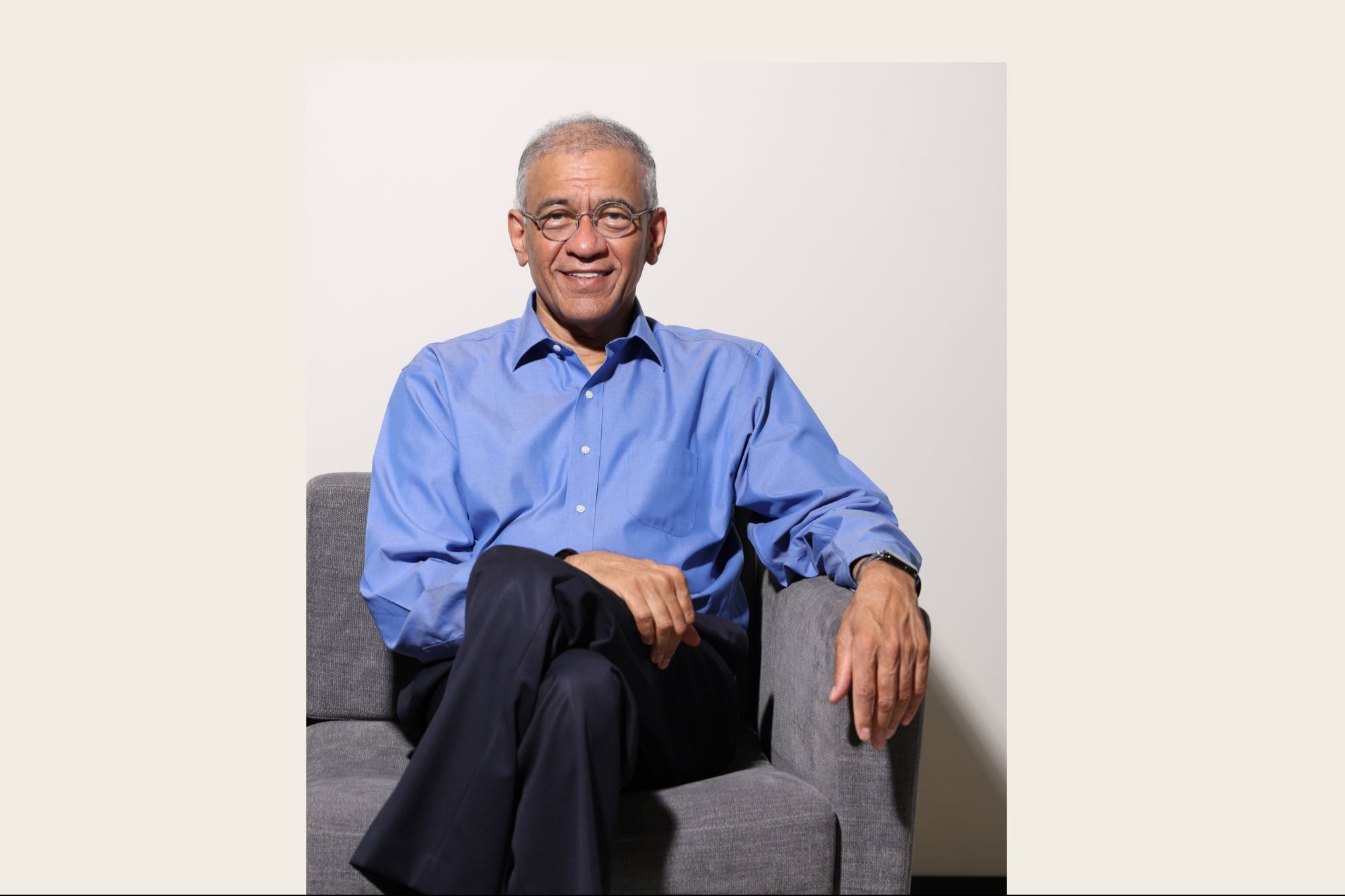From TVS Legacy To India's PE Powerhouse Entrepreneurship is one activity that dramatically enhances the growth of a country; it creates aspiration, stability, and a sense of progress, says Gopal Srinivasan, Chairman and Managing Director of TVS Capital Funds
You're reading Entrepreneur India, an international franchise of Entrepreneur Media.

When Gopal Srinivasan speaks, the conversation rarely stays within the narrow confines of private equity. Instead, it expands into entrepreneurship, society, resilience, and the philosophy of long-term growth. For the Chairman and Managing Director of TVS Capital Funds, investing isn't merely about numbers or exits — it's about shaping the DNA of India's next generation of entrepreneurs
"Entrepreneurship is one activity that dramatically enhances the growth of a country. It creates aspiration, stability, and a sense of progress. It's not just about building companies — it's about building society," states the entrepreneur turned investor.
Having spent over two decades as an entrepreneur before founding TVS Capital in 2007, Srinivasan carries both the mindset of a founder and the discipline of an investor. His journey is deeply personal: from scaling ventures himself to now backing those who dare to dream bigger. Guided early on by legendary management thinker C.K. Prahalad, Srinivasan plunged into private equity at a time when the sector barely existed in India.
Betting on India's Story
When Srinivasan launched TVS Capital, his conviction was simple: India was on the cusp of an entrepreneurial explosion. In the early years, the fund focused on mid-market businesses in consumer, services, and finance. The bet was bold — Indian capital, invested in Indian companies, for the long haul. "We were determined to raise only Indian money and invest only in India. We were betting on a 30-year Indian story," states Srinivasan. From early investments in RBL Bank and Duster's facility services to breakout bets like Nykaa — where he recognized Falguni Nayar as a "next-gen entrepreneur" long before her IPO fame — Sriniva san has consistently sharpened his strategy.
Over time, TVS Capital grew from a 600 crore fund to its current 4,000+ crore Fund IV with deep focus on financial services and enterprise technology.
Lessons from the Founder's Lens
Unlike many financiers, Srinivasan approaches investing with the empathy of someone who has lived the entrepreneurial grind. "I've been an entrepreneur nine times before this, so I know the aloneness, the constant ups and downs. People see the glamour and wealth, but not the struggle. That's why I spend time inside the minds and hearts of founders — beyond just their numbers," says Srinivasan. His biggest investing lesson? Belief in dreams. "If we don't believe in an entrepreneur's dream, we shouldn't be there. Once we do, we must stay invested in that dream," he believes. This philosophy is evident in his personal involvement with a handful of portfolio founders, where he becomes more than an investor — a mentor, counselor, and sounding board
The Next Generation of Entrepreneurs
For Srinivasan, the most exciting entrepreneurs of 2025 aren't necessarily IIT/ IIM pedigrees, but talent spinning out of large companies with the hunger to build enduring businesses. "Why restrict ourselves to 40,000 elite graduates when India produces 25 million people a year? The next-gen entrepreneur is defined not by pedigree, but by ambition, ability, and talent attraction," mentions Srinivasan. He highlights recent bets like Saarathi in Mumbai and Finnable in Bengaluru, both founded by professionals leaving established institutions to build from scratch. "This is the age of talent. If a business can't attract and retain top talent, it can not endure. And India needs enduring businesses, not just one-time unicorns," he states.
For Gopal Srinivasan, entrepreneurship boils down to three core qualities: ambition, ability, and attraction of talent. These, he insists, are non-negotiable.
While ambition and executional ability can take a company far, it is the third element—the ability to attract and retain great talent—that separates truly enduring businesses from short-lived successes.
He illustrates this with examples. "The reason why some entrepreneurs don't fit with us is not because they lack ambition or ability. They have both. But if they cannot attract talent, that's where we hesitate," he says. In contrast, companies like Zomato have succeeded in being talent magnets—drawing in and retaining high-quality people who collectively drive long term growth.
Why Talent Matters
"We believe this is the age of talent," Srinivasan asserts. A single individual, however driven, can only take a company so far. For a business to thrive for decades, it must become a hub where talent f lourishes. Without this, he warns, companies risk being limited by the energy of their founders. "It will only grow as long as these individuals have that josh in them, and the utsaha in them.
It will not grow beyond them." In his view, ambition and execution matter, but they must be reinforced by an ecosystem of people. That collective capability is what creates resilience, scalability, and sustainability.
Building for 20–30 Years
Srinivasan's philosophy on investing is rooted in endurance. "If you want to invest in a business as a 20–30 year minimum success line, the only way you can do that is in addition to ambition and ability to execute—it's basically attraction and retention of great talent." This long-term approach reflects his broader belief: businesses should not just
Enduring Businesses, Repeatable Returns
The idea of "enduring businesses" is at the heart of Srinivasan's vision for India's growth story. To him, success isn't measured in singular spikes of achievement but in the ability to replicate outcomes consistently. "Maybe we'll only make 3x or 4x, maybe 4x or 5x. But we can do it across 15 companies," he explains. That steady reliability—anchored in talent—is what ultimately creates trust, longevity, and the foundation for India's next generation of entrepreneurs.
Sharpening the Investor's Eye
Two decades into investing, Srinivasan has moved from chasing perfection to focusing on the critical few. "When you start, you drown in data. Over time, experience teaches you to focus on two or three things that really matter for long-term success." Increasingly, he prioritizes the quality of the entrepreneur over the entry valuation. Sometimes, he admits, TVS Capital even overpays — but for the right founder. "If the entrepreneur is strong enough to navigate cycles, even a slightly higher entry cost pays off in the long run."
Challenges and Breakthroughs
Scaling a PE fund in India hasn't been without challenges. Raising capital in the early years was difficult, and build You must aim for the best but prepare for the worst. Retaining objectivity is crucial. And talent — that's always scarce. We can't just put out an ad for partners in Chennai." Despite this, Srinivasan has institutionalized TVS Capital with profit-sharing models for employees and a long-term vision of building an enduring platform that goes beyond fund-to-fund cycles.
The Future of Private Capital in India
Looking ahead, Srinivasan believes India needs 3-5x more private capital to sustain its growth trajectory — and that a large share should come from Indian savings. "India has 35 trillion in pension money. Even 5–10% of that, allocated to private equity, could transform the entrepreneurial landscape. Self-reliance in capital is as critical as in manufacturing." He envisions TVS Capital itself becoming a global player in the next 20–30 years. "Just as IT services became India's global story, private equity can too. We want TVS Capital to be a trusted investor not only in India, but across Asia and Africa — while always staying true to our mission of empowering next-gen entrepreneurs."
The Innovation Imperative
Even in the age of AI and technological disruption, Srinivasan insists that the fundamentals of entrepreneurship remain timeless. "Methods may change — e-commerce, digitization, AI — but the core doesn't. Entrepreneurship is about innovation, persistence, and customer delight. The true entrepreneur is defined by innovation, not by trends," he concludes.











